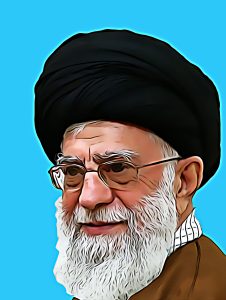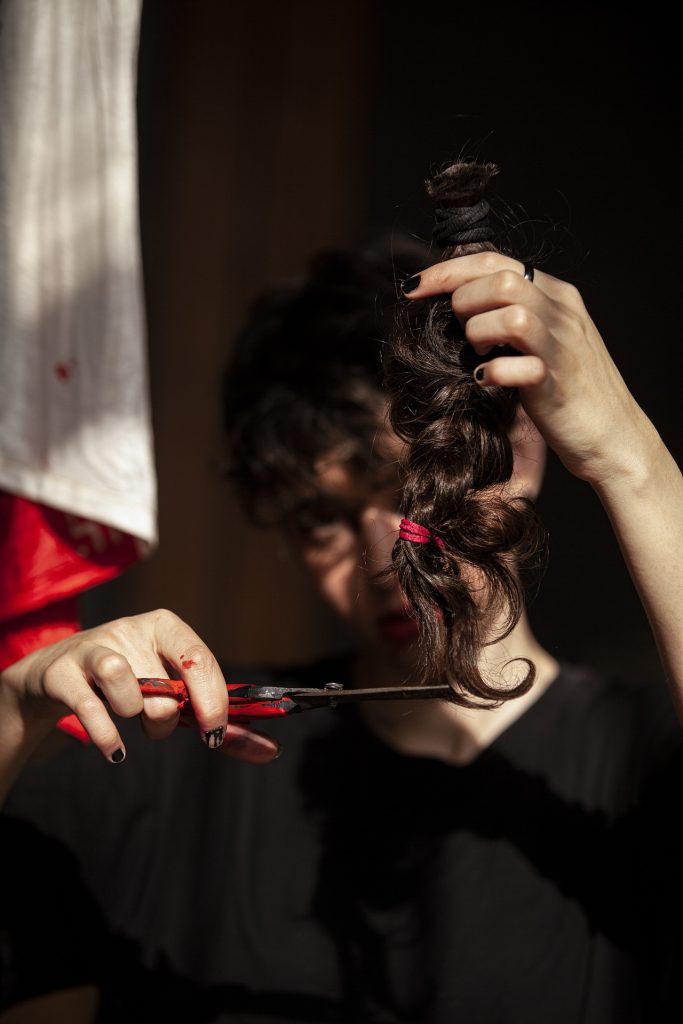Index relies entirely on the support of donors and readers to do its work.
Help us keep amplifying censored voices today.
At the end of every year, Index on Censorship launches a campaign to focus attention on human rights defenders, dissidents, artists and journalists who have been in the news headlines because their freedom of expression has been suppressed during the past twelve months. As well as this we focus on the authoritarian leaders who have been silencing their opponents.
Last year, we asked for your help in identifying 2021’s Tyrant of the Year and you responded in your thousands. The 2021 winner, way ahead of a crowded field, was Turkish president Recep Tayyip Erdogan, followed by China’s Xi Jinping and Syria’s Bashar al-Assad .
The polls are now open for the title of 2022 Tyrant of the Year and we are focusing on 12 leaders from around the globe who have done more during the past 12 months than other despots to win this dubious accolade.
Click on those in our rogues’ gallery below to find out why the Index on Censorship team believe each one should be named Tyrant of the Year and then click on the form at the bottom of those pages to cast your vote. The closing date is Monday 9 January 2023.
VOTING HAS NOW CLOSED. SEE WHO YOU VOTED AS TYRANT OF THE YEAR 2022 HERE.
 If you were in the Iranian capital Tehran on Friday 23 September, you would be forgiven for thinking that Ali Khamenei was a popular and misunderstood leader. That day, thousands of Iranians marched through the city waving Iranian flags and holding high photos of Khamenei and his predecessor Ayatollah Ruhollah Khomeini.
If you were in the Iranian capital Tehran on Friday 23 September, you would be forgiven for thinking that Ali Khamenei was a popular and misunderstood leader. That day, thousands of Iranians marched through the city waving Iranian flags and holding high photos of Khamenei and his predecessor Ayatollah Ruhollah Khomeini.
“This is a classic from the authoritarian playbook,” says Index’s associate editor Mark Frary. “How often do you see such pro-government rallies in truly free countries? You have to wonder what pressure they bring to bear on the people present to agree to take part in events which are clearly designed to drown out true protests.”
The September rallies were a largely unsuccessful attempt, at least outside Iran, to distract attention from widespread protests in the country following the death in custody of 22-year-old Mahsa Amini, detained by Iran’s notorious Gasht-e Ershad.
“These so-called ‘morality police’ uphold respect for Islamic morals, including detaining women who they see as being improperly dressed, such as wearing revealing or tight-fitting clothing or not wearing the required hijab,” says Frary.
Since then the country has been wracked by protests, which have been violently subdued. Oslo-based NGO Iran Human Rights say that a minimum of 448 people, including 60 children, have been killed in the protests. Many of those paying the ultimate price for protest have been women.
The Iranian authorities have been trying to keep a lid on the news by shutting down the internet in the country. Iran’s parliament has also been working on a draft bill that seeks to impose further restrictions on internet access for people in Iran, including criminalising the use of virtual private networks.
The football commentator’s well-worn cliché about the sport being a game of two halves usually refers to the action on the pitch. But in the build-up to the game between England and Iran at the 2022 FIFA World Cup earlier this week, it was the off-field actions of the teams which showed a divided response to events in the wider world.
Shortly before kick-off, it was decided by the English FA (among other European football governing bodies) that England’s Harry Kane would forgo wearing the OneLove captain’s armband, which displays a heart containing colours representative of all backgrounds and is part of a message promoting inclusion. The reason given by the FA was that “we can’t put our players in a position where they could face sporting sanctions including bookings.”
Then, just before the match, as the Iranian national anthem rang around the Khalifa International Stadium in Doha, the Iranian players remained silent. Referencing the now-months long protests in Iran, which are pushing for regime change after the death of 22-year-old Mahsa Amini in Tehran on 13 September 2022, Iranian captain Ehsan Hajsafi said that: “We have to accept the conditions in our country are not right. Our people are not happy. We are here but it does not mean we should not be their voice or must not respect them.”
The actions, or rather inactions, of the English FA and the Iranian footballers have had contrasting results. By aiming first but then relenting on the promise to have Kane wear the armband shows just what a failed empty gesture it was. A financial fine would have been accepted, but the fear of a single yellow card forced the FA’s hand (and that of other countries, such as Wales, Germany and the Netherlands). Were the teams and players ever really behind it if they could u-turn so quickly?
On the other hand, the silence of the Iranian footballers has shown the courage that a united action brings, not least given how much higher the risks – the repercussions the footballers may face on the return to their homeland, where they will have family and friends, are far more severe than a card brandished on the pitch.
That said we should be careful about where we lay blame in terms of not wearing the armband. It is understood that Kane still wanted to wear it, and even if he didn’t, is it fair to expect the England players to be politically active in the course of what essentially is their day job (as Julian Baggini argues in our last issue)?
The bigger fault lies squarely at the hands of FIFA for awarding the tournament to Qatar, as well as the governments and authorities around the world who have said very little about the country’s abuses since 2010. When news organisations have reported on abuses, especially on the Kafala system, which ensured an extremely cheap labour force was on hand to build the infrastructure for the World Cup, journalists were detained and threatened – again to very little public outcry. While minor changes have been made to improve the labour system, reports that at least 6,500 migrant workers still died since 2010 has again received far too little outrage.
Even during the immediate build up to, and including the tournament so far, FIFA appears happy to kowtow to Qatar’s last-minute demands. While the consumption of alcohol isn’t a free speech issue, FIFA’s agreement to Qatar’s last-minute ban on the sale of alcohol in stadiums is yet another sign that it is Qatar who are setting the rules. Also, despite assurances from FIFA, rainbow-coloured flags and attire were prohibited in spectator areas, as seen by the Welsh fans who had rainbow-coloured bucket fans confiscated before their opener against the USA. In a nation where homosexuality is still illegal these are hardly surprising actions but they show how arguments like “the World Cup will improve the rights situations in Qatar” was never a commitment taken seriously. The activist Peter Tatchell, an Index contributor who was himself detained following a protest to highlight LGBT rights in Qatar in October, puts it well: “#FIFA and #Qatar promised that LGBT+ fans & rainbow insignia would be allowed at #WorldCup. They have trashed that promise – and their reputations. But what did you expect from a sexist, homophobic & racist dictatorship?”
We at Index on Censorship love the fact that football is the world’s game, able to unite people across gender, race, religion and nationality. From Norway to Nigeria, it’s the universal language where a conversation about Manchester United or Lionel Messi can take place without knowledge of the native tongue. We have no issue with football and our Autumn issue showed its amazing power to transform lives. It’s for this reason that we remain angered that it is taking place in Qatar, who seem to be normalising their autocracy on a world stage. And it’s for this reason that we are angered that the simple threat of a yellow card has determined a retreat from taking a stand on such an important issue, even if that stand was small and largely symbolic. Iran might have lost against England on Monday but they proved to be the real winners when it came to courage and conviction.

Photo: Shima Abedinzade
I went on my first political demo when I was a baby – joining the march against pit closures. For four decades I have been on demos to save jobs; on pickets to support striking workers and; on marches against racism and political extremism. I have participated in political stunts at elections and vigils to mark horrendous and heartbreaking events. Each has been newsworthy to some extent, each was meant to be a mark of solidarity with a community or a group whose voice needed to be amplified in order to be heard. Each was a statement of my personal values and a commitment to make our society a little better.
But none of these acts of democratic participation required me to be brave. Not really. I never once considered if my political views could, on that day, cost me my life. Although in hindsight some of them made me very vulnerable. But I never thought about it seriously because I am so incredibly lucky to live in a democracy, to have basic human rights which protect my right to be heard, to protest, to assemble. To speak truth to power. My biggest threats came from individuals who wished me harm – not a government or a police force or a judiciary.
I am lucky. I know I am. And I am so grateful for it.
Which is why it is so important that people like me, like you, use their voices to promote those who are brave, those who risk everything by walking down the street without a head scarf, those who stage a sit in outside the Kremlin against an unjust war, those who unveil a banner exposing the tyrant that governs them. These people are brave beyond words. They use the only things available to them – usually their bodies – to challenge an unacceptable status quo. And by doing so they build a movement. They move the dial just a little and they place untold pressure on the tyrants and dictators who strive to silence them.
We have a duty to support them, to tell their stories and to amplify their voices. Because otherwise nothing changes.
The tyrants win if we let these acts of protest pass without notice. If we let global news move on and forget the faces of those who have paid the ultimate sacrifice to demand their access to the universal values that we hold so dear and so easily take for granted. We have an obligation to support the Iranian women in their demands for equality. We have a duty to tell the stories of those Russian dissidents who push back against Putin’s illegal invasion. We have a responsibility to ensure that the democracy campaigners imprisoned in Hong Kong are remembered. Not just today but every day.
We have to be, today and always, a Voice for the Persecuted.